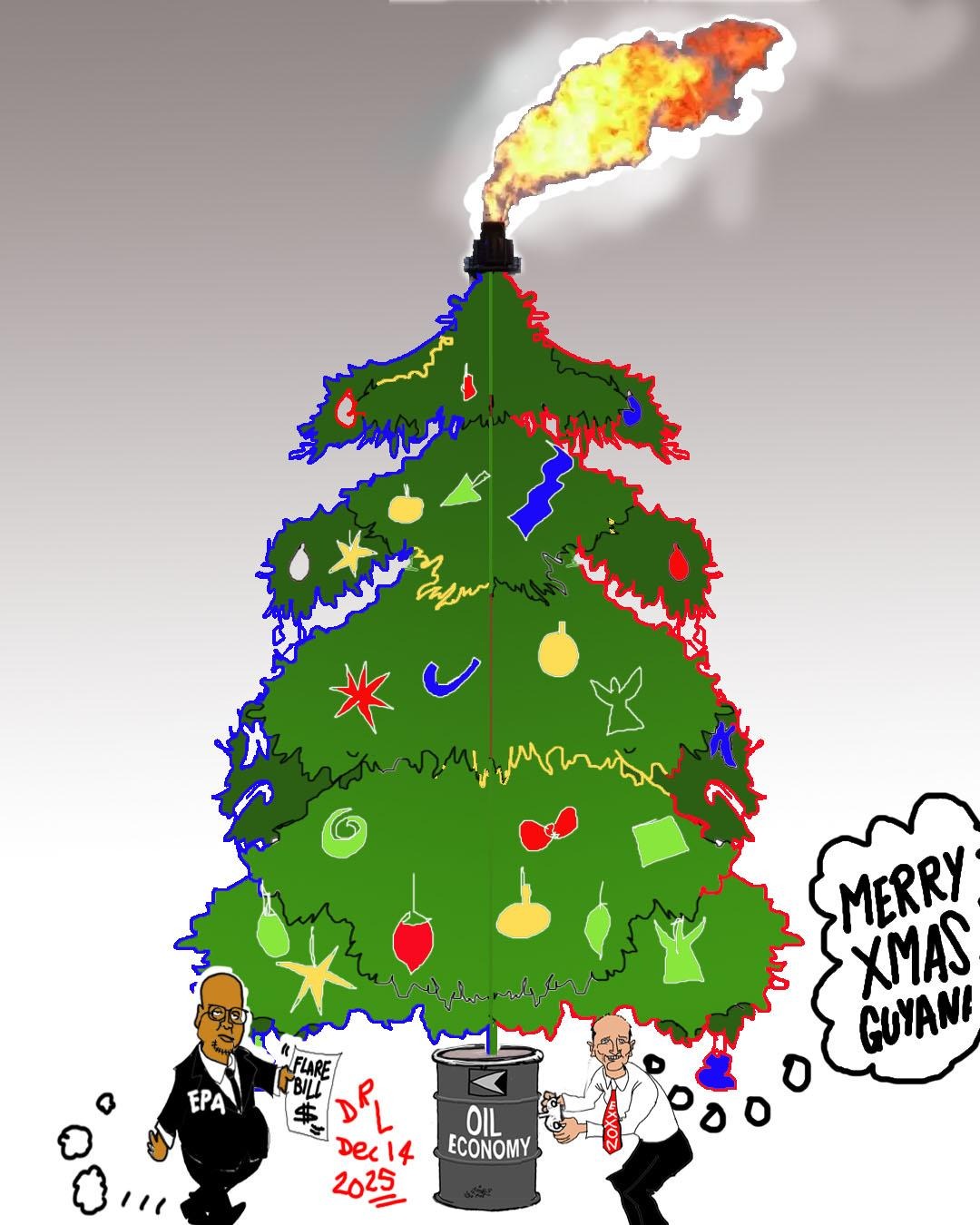Latest update December 20th, 2025 12:30 AM
Latest News
- ‘We must plan for possible hostilities as U.S. heats up row with Venezuela’- APNU
- US$15M signing bonus by Total Energies paid into NRF
- UG brings Christmas cheer to vulnerable Children
- U.S. issues sanctions on family members and associates of Venezuela’s Maduro
- High Court rules SOCU has legal standing in Moura gold smuggling case
UN raises concerns about environmental impact of Guyana’s oil production
Aug 14, 2020 News
 The United Nations Human Rights Committee has written to Guyana seeking answers about the environmental hazard posed by offshore oil production, a hazard it considers a challenge to the human right to life.
The United Nations Human Rights Committee has written to Guyana seeking answers about the environmental hazard posed by offshore oil production, a hazard it considers a challenge to the human right to life.
The Committee has raised concern about the impact of such operations on the International Covenant on Civil and Political Rights. Article Six of the decades-old Covenant, of which Guyana is a signatory, protects the right to life.
Paragraph 1 of Article 6 of the Covenant lays the foundation for the obligation of countries to respect and to ensure the right to life, to give effect to it through legislative and other measures, and to provide effective remedies and reparation to all victims of violations of the right to life.
In this regard, the United Nations has asked Guyana to provide information on the steps it has taken to prevent and mitigate the negative effects of climate change and environmental degradation, in the context of its extractive sectors.
The operations of ExxonMobil have been of particular concern to local stakeholders. The company has been flaring hundreds of millions of cubic feet of gas in the Stabroek Block for months, releasing hundreds of cancer-causing toxins into the environment.
The Environmental Protection Agency (EPA) Director, Dr. Vincent Adams, had told this newspaper that the oil giant has been burning approximately 12 million cubic feet of gas per day since May.
The multinational was supposed to put an end to its flaring by August 10, but Adams was recently informed that the company would not be able to make that deadline. All the while, the United Nations has been noting the gravity of this issue and its impact on “greenhouse gas emissions…ocean acidification and rising sea-levels.”
The UN is also concerned about the impact of such dangers on vulnerable groups, including Indigenous communities, fishery-dependent communities, and persons living in poverty. The Committee asked what steps Guyana has taken to ensure the natural resources are sustainably used, with particular mention of oil and gas. It also asked about the development and implementation of Guyana’s environmental standards, including the Environmental Protection Act; the country’s conduction or facilitation of environmental impact assessments, and the provision of appropriate access to information on environmental hazards.
Guyana has not made any updates to the Environmental Protection Act since oil was discovered. The country was advised far and wide to ensure legislative updates are made to facilitate the oil and gas industry as quickly as possible. Only one piece of legislation was introduced to facilitate oil production, and that was the Natural Resource Fund Act to collect the oil money. Otherwise, no legislative updates were made to ensure oil production is properly managed.
Meanwhile, ExxonMobil has received approval for the development of two oil projects, Liza Phases One and Two. It is also pressuring the government to grant a premature approval to its third development, despite not fixing the flaring issue.
Dr. Adams has noted that ExxonMobil’s opposition to paying paltry fines for small fuel spills in the Stabroek Block are indicative of a lackadaisical attitude which could spell disaster for Guyana.
Discover more from Kaieteur News
Subscribe to get the latest posts sent to your email.
Similar Articles
Listen to the The Glenn Lall Show
Follow on Tik Tok @Glennlall
Your children are starving, and you giving away their food to an already fat pussycat.
Sports
Dec 20, 2025
Kaieteur Sports – The stage is set for a thrilling showdown as the final two teams booked their spots in the 2025 KFC International Goodwill Football Series final following two pulsating...Features/Columnists
Dec 20, 2025
(Kaieteur News) – For many of us, the cinematic portrayal of elderly care provides an image of dignified spaces where private rooms open onto lush gardens, and communal areas–such as dining and recreational rooms – hum with quiet activity. These images, common in films from the developed...Sir. Ronald Sanders
Dec 14, 2025
(Kaieteur News) – The Caribbean is living through a moment of rising geopolitical tension. As the United States intensifies pressure on the Maduro government in Venezuela, the ripples reach CARICOM shores fast. None of these countries chose this confrontation, yet each of them is forced to...The GHK Lall Column
Dec 20, 2025
Hard Truths by GHK Lall (Kaieteur News) – They are talking about it around the marketplaces. Guyanese are talking about it in the water ferries. Locals are talking and talking about it on the minibuses, the New Bharat Jagdeo Demerara River Bridge (the old one, too). At weddings and wake...Publisher’s Note
Freedom of speech is our core value at Kaieteur News. If the letter/e-mail you sent was not published, and you believe that its contents were not libellous, let us know, please contact us by phone or email.
Feel free to send us your comments and/or criticisms.
Contact: 624-6456; 225-8452; 225-8458; 225-8463; 225-8465; 225-8473 or 225-8491.
Or by Email: glennlall2000@gmail.com / kaieteurnews@yahoo.com













